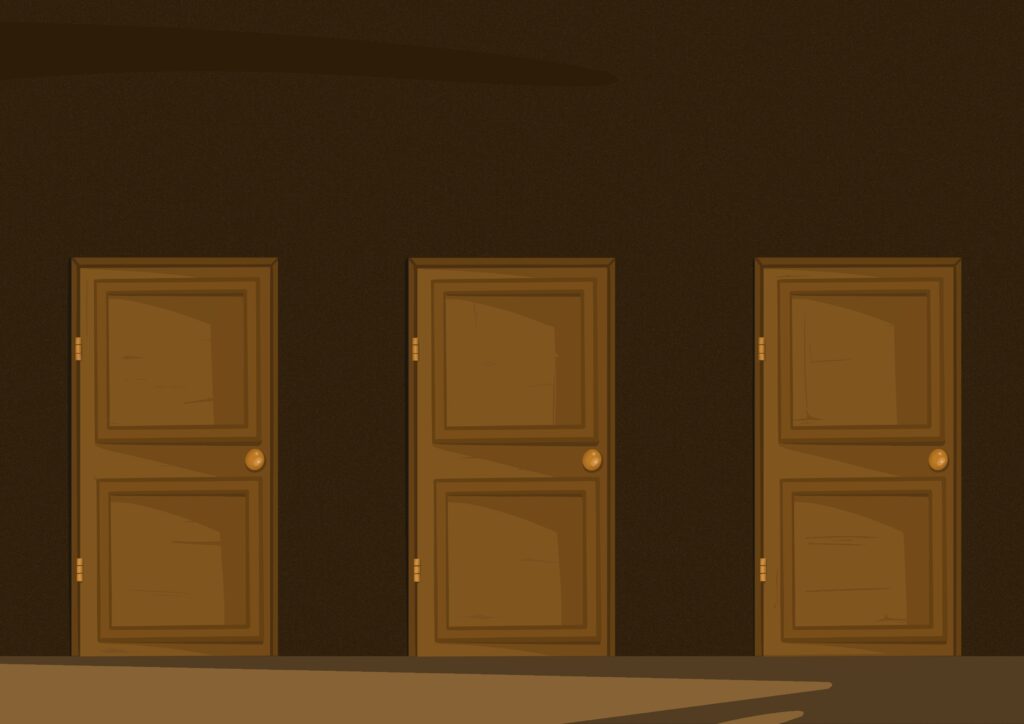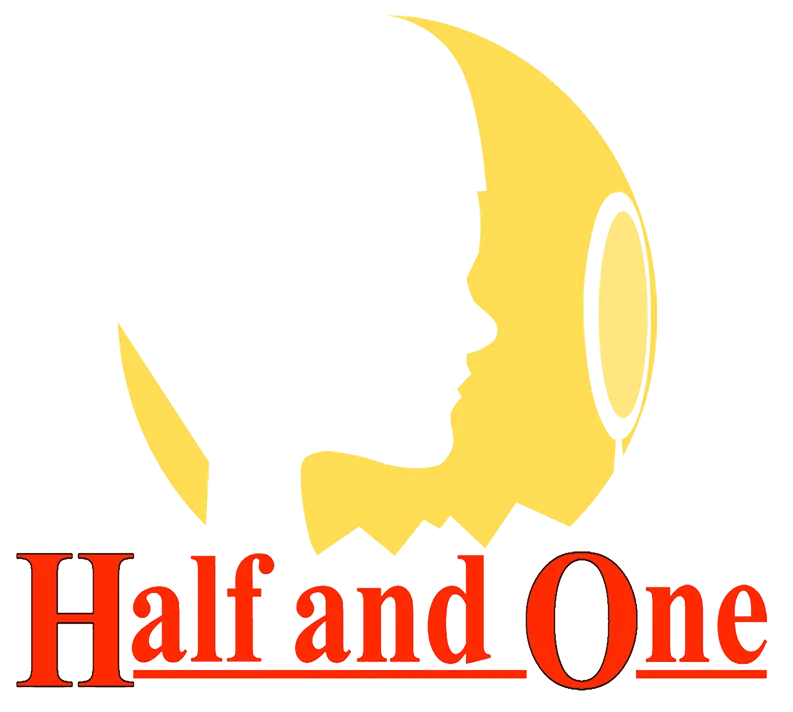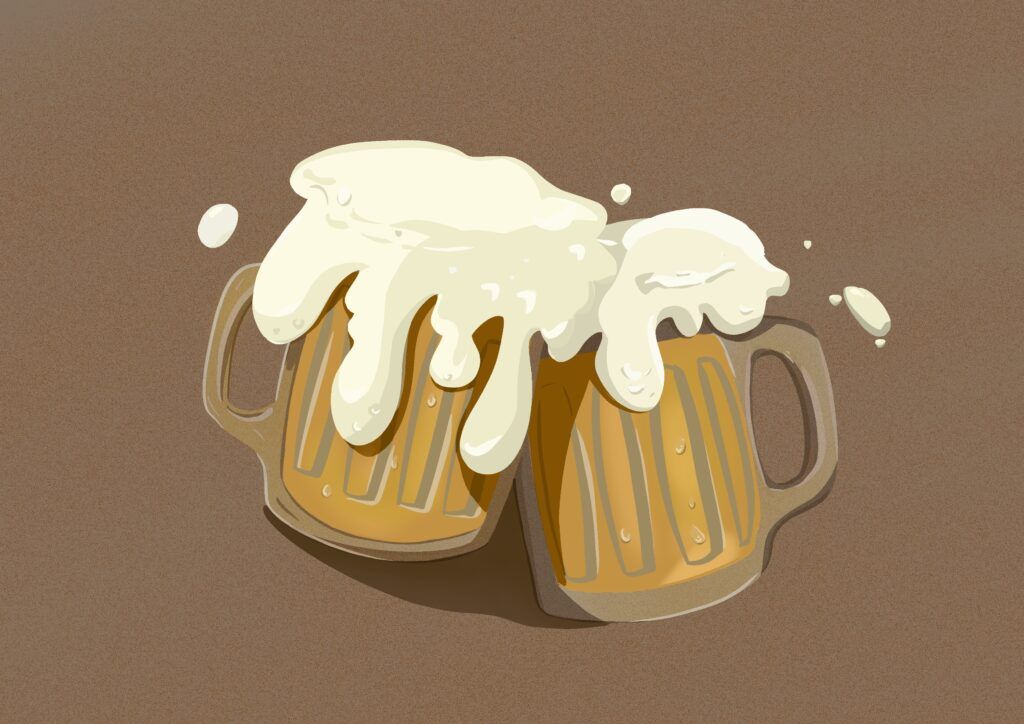I couldn’t stop altogether my periodic jaunts to the dives, those upper-lower hangouts frequented close to work; these trips are essential for convivial contacts with Peer and Proletariat, for Data Exchange and Dilution of Snob.
But I knew sooner or later I had to run into Jack, knew it had to happen. I had dreaded this like the first tetanus shot, knowing the pain and the necessity, and knowing it was bound to be worse after so long and with time running out.
He was standing ominously at the other end of the bar, alone, seeing me, knowing I was seeing him. His slow approach toward me was a twirling shuffle, his foot dragging behind as he leaned on an ironically gnarled cane.
“Buy you a beer, Les,” he wheezed, splitting two fingers, waving at a suddenly faceless barmaid who perhaps dreaded him as I did. He ignored the transparencies and took a stool, making me take one, too.
The face was blotched, one side frozen in a permanent smile, the voice mock cheerful. And he paid for the beer I’d been sure he couldn’t afford, but he flashed a roll. (This puzzled: he hadn’t worked in years. A pension? No, he’d never fill out the forms. Out-of-court settlement? Maybe. He’s that way now!)
I cringed when he asked after the old gang, the gang that venerated him, worshipped him. And why not? He was master craftsman, independent soul, solid MichaelangeloUlyssesHoudini on a job that was never dreary because of him.
We gathered around him in those yesterdays, around his hearth in that tiny apartment, the tiny, cluttered pad that would have been drab but for the Lion and his Pride of Three. We came for long evenings, for warmth and beer and homemade wine and solace and wisdom and laughter and chess.
And we came to be with Mardee, full-blown, braless under sweaters, Mother Earth, dispenser of counsel and purgatives and lust. A Molly Bloom not quite promiscuous, she bumped us with massive boobs in the always crowded den, Frenched us unmercifully under out-of-season mistletoe, or backed into us with those lush, luscious buns when she caught us erectile; but nobody ever scored (except maybe we did think Little Charley got a hand-job on the night when the fuses blew), for it was unspoken that the obstacle to getting into Mardee’s panties (she said they were always pink) was beating Jack at arm-wrestling, or beating him at chess, a league none of us could fathom.
All this I saw in hazy history as I mouthed to Faded Jack as he wheezed at me, as he saw the gang, that clan, that mob that had hovered around Jack before his Fall from Grace, a fall that coasted, then sputtered, then climaxed, until we see this creature, this hulk, this shell existing on a bar stool before me, a calling-card for living doom.
These chronicles, unsaid through his wheeze and my acquiescence, were growing torture for me, if not for Jack. Through it all, I knew, just knew, he was leading up to a statement, a capsule that would translate his Fall from his Accepted Universe, his demise, his ruptured course; this I had dreaded since ever – I wanted this statement and I didn’t want it, both very badly.
The Fall! Bits and pieces, we all knew: ‘They’, those forces he bulwarked against, demanded in him Compromise, which, to him, meant dilution of his sacred arts, meant the draining of the essentials. And, of course, he’d steadfastly refused, refused with aplomb, refused with Fustian dash: Cyrano with a bigger nose.
And the refusal had been a lively skirmish when his ground had been solid, when his skills were too respected for those forces to oust him overtly, as troops circled wagons, as cadres rebelled, and even Gentry divided, as Stubborn Jack embodied defiance and resolution.
But with attrition and bureaucratic guile, the clamp of Powers-That-Be tightened the noose, reduced his bailiwick to nothing, and waited on the Stallion, waited until Company Policy could document: “He crossed the line!”
Another company took him in but demanded the self-same Compromise, and he was out again, and again, until Executive Grapevine, that cancer that has lawyers to avoid conspiracy charges, had all doors closed to Jack, had him unable and unacceptable for the entire universe of the craft he revered.
Mardee, most desirable Mardee, on reduced family product, became Cottage Industry, bouncing the big boobs before envious neighbor wives who nonetheless bought her decorated cakes and pies, and her Ding-Dong Lady perfume, and attended her pot-and-pan parties, as Mardee was more than beating the bills and getting the kids through school, as Jack sulked and fumed and insulted.
And hearth was no longer hearth to us, no more solace or wisdom or warmth, with Jack so petulant, with his tirades that praised his own defiance while berating us for not going to the same Dunkirk as he, with Mardee still voluptuous but now so distant in her embarrassment over Jack’s embarrassment.

But at his oaken bar and the third beer he bought me, Jack is warming up unpleasantly, slipping into diatribe, speaking frighteningly often of his trade, his art now so shabbily treated in New Zion, the art that sorely misses him (though ‘They’ don’t know it) in product if not portfolio.
But no mention of Mardee from Jack, and certainly none from me – too cruel a curiosity here, since he’d left with that little Waif, that little protest groupie younger than his daughter. (Did he leave the Queen from insult? Was Molly Bloom unpromiscuous even to Ulysses? Where is the Waif now? Had she left from too much state of arts for another defiant brute, or had she stayed around to watch his stroke, only to desert the irascible cripple?)
A wheeze, now and again a growl, from this once gusty basso profundo, the Lion now shriveled and lame as much from hate and chagrin, while he blasts those who gutted his honored field for Mammon and Gross and Hierarchy, and those he trusted (the gang, me, the unmentioned Mardee, the unmentioned Waif) who deserted in the heat of battle.
I am in pain, thinking of possible exit lines, but knowing I won’t leave until he bids it, knowing he is leading up to a statement, knowing I may never see this faded warrior again, but not knowing if I can handle it, not knowing if I am man enough to stand the broadside of what could be his last bombast, his last stab at Company and all of us.
As if to bring it to a head, Jack said, “Going to Florida.”
“Oh?”
“Yeah. To die.”
I know this can’t be the final decree, his last bolt. I think of stock rejoinders to make, out of courtesy (“To die? Come, now! Florida? Hear it’s nice.”)
He lifts himself, embraces the ironically gnarled cane, twists, drags the foot in the general direction of the door, tossing a wheeze over his near shoulder.
“Got to go now,” his wheeze is as if calling to the fog that surrounds the kaleidoscope that is Jack and Mardee and the gang and the Waif and the damned Company, “won’t die here. Bus tomorrow.”
He stops, turns not quite around, and becomes wheeze-Stentorian.
“John Andrew Whitson paid a hell of a price for being right.”


